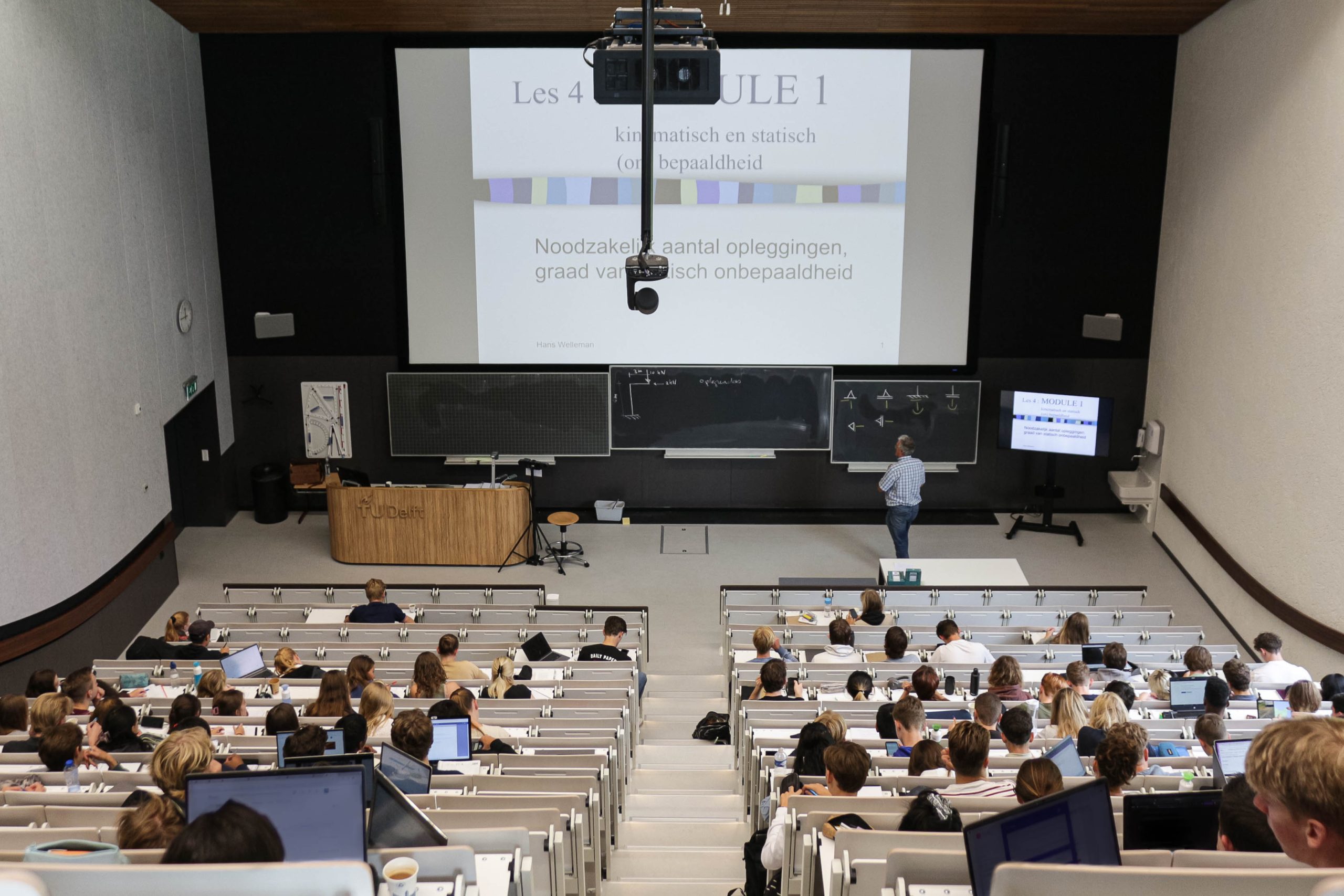The number of temporary contracts at Dutch universities is continuing to grow. Also at TU Delft. Minister Dijkgraaf says it is related to the temporary corona funds.
Photo for illustration. (Photo: Justyna Botor)
This emerged from the response of ministers Dijkgraaf (OCW) and Wiersma (Primary and Secondary Education) to questions in response to the General Education Union’s (AOW) report on the increase in temporary contracts in primary, secondary and intermediate vocational education over the past 10 years. Professors and associate professors are barely affected by this issue. Almost all of them hold permanent positions. But lower down the academic career ladder, job security is far from the norm.
30 percent of university teaching staff are on a temporary contract. That is one percentage point up on last year, despite a whole range of efforts and resolutions by universities to ensure more permanent employment. At TU Delft, this figure is lower, with 16 percent of associate professors on temporary contracts. However, that is 5 percent more than in 2020.
Among other lecturers (without research duties) it is double that proportion. 34 percent of all TU Delft lecturers have temporary contracts. Nationally, the percentage is 60 percent. Just a few years ago, it was only 53 percent and in 2005 it was even less: 43 percent. The treatment of these teachers in particular is the subject of controversy.
- Also read: [Column] A permanent contract
But support staff too are increasingly finding themselves being appointed for a fixed period. This figure once stood at 10 percent, then for years it hovered around 15 percent, but in recent years it has crept up to 18 percent.
At TU Delft, the percentage is actually decreasing. In 2015, 14 percent of support staff were working on temporary contracts; in recent years, the percentage has stood at 11 percent.
Differences
There are notable differences between universities on this issue. Utrecht is still the champion of temporary contracts: 90 percent of the teaching staff there are not in permanent employment. At the other end of the spectrum there is Eindhoven University of Technology, where only 31 percent of these teachers have an end date in their contract.
Without addressing these differences between universities, the education minister does offer an explanation for the recent increase: he says it is related to the temporary resources to address the impact of Covid. He points out that the effect of recent collective labour agreements on permanent contracts is not yet reflected in the tables above.
Dijkgraaf has previously stated that he wants to push hard for permanent contracts in higher education. One approach has been to create starting grants for new university teaching staff and attach conditions to the sector plans that universities are required to draw up collectively.
For years, unions and action groups have been campaigning against temporary appointments. Staff at the University of Amsterdam held a partial strike, refusing to mark students’ work in a move to force more permanent jobs. A ‘disposable teacher’ in Utrecht took the university to court for denying him a permanent contract but he failed to win the case.
HOP, Bas Belleman
Translation: Taalcentrum-VU
Do you have a question or comment about this article?
redactie@hogeronderwijspersbureau.nl


Comments are closed.